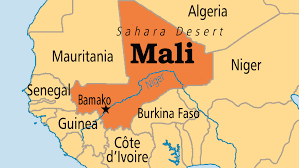APA-Bamako (Mali) The sanctions regime was not extended following a Russian veto on Wednesday 30 August.
In a recent note sent to its correspondents, the United Nations lifted the sanctions imposed on certain actors in the peace process in Mali who are accused of impeding its implementation.
This decision is in line with the non-renewal of the sanctions regime in force in Mali following the adoption of Resolution 2374 by the United Nations (UN) Security Council in 2017. This situation also put an end to the mandate of the group of UN experts responsible for supervising the application of these sanctions.
The sanctions regime was not extended following a veto on Wednesday 30 August by Moscow, Bamako’s new ally on the brink of a diplomatic rift with Paris.
However, it was at the request of the Malian authorities at the time that this regime had been approved by the UN Security Council in order to sanction those who would hinder the implementation of the 2015 peace agreement. The sanctions include travel bans and asset freezes.
Since its adoption, eight individuals more or less linked to the agreement have been sanctioned. They are Ahmoudou Ag Asriw, of the armed group GATIA – claiming to be pro-State, Mahamadou Ag Rhissa of the High Council for the Unity of Azawad (HCUA), a former rebel group, Mohamed Ousmane Ag Mohamedoune, currently a member of the National Transitional Council (CNT), and leader of a political movement supporting the ruling military, Ahmed Ag Albachar, businessman and special adviser to the governor of the Kidal region, Mahri Sidi Amar Ben Daha, known as Yoro Ould Dah, former leader of MUJAO who was killed in February 2020, Mohamed Ould Mataly, former MP for Bourem (Gao region) and current member of the CNT, Mohamed Ben Ahmed Mahri, CEO of Tilemsi Transport and Houka Houka Ag Alhousseini, current Cadi in Timbuktu and former Islamic judge of the city under the occupation in 2012.
In reality, the sanctions had never been scrupulously respected, since the individuals in question continued to enjoy certain benefits, including from the state.
What has angered Bamako, however, is the fact that in its latest report, the group of UN experts responsible for monitoring the application of these sanctions implicated “elements of the Malian army and mercenaries from the Wagner group” in abuses against civilians.
This situation bears witness to the deep malaise between the UN and the transitional authorities. Hence the request for the withdrawal of the United Nations Multidimensional Integrated Stabilization Mission in Mali, which began on 1 July and is due to end before 31 December.
Bamako accuses the UN mission of being “incapable of restoring peace in ten years of presence” and of being “at the root of tensions between communities.”
MD/ac/fss/as/APA


